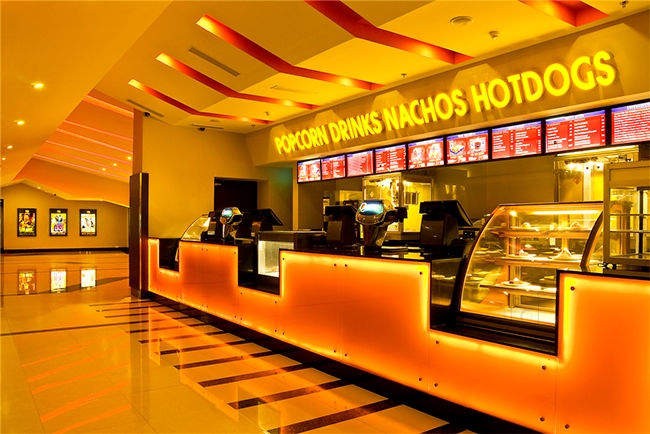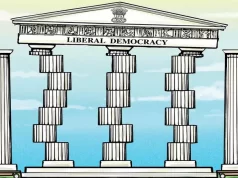In December of last year, a public interest litigation (PIL) petition was filed before the High Court of Bombay challenging multiplex cinema halls’ right to bar customers from bringing outside food into the cinema premises. Last month, the counsel for the Government of State of Maharashtra deposed before the court that the state is in the process of forming a policy on this matter, and that said policy will be presented in six weeks.
Through this post, we will argue that the State’s policy should maintain the status quo; any concession to the petitioner’s demand will set a dangerous precedent for judicial intervention in private affairs, and incorrect horizontal application of fundamental rights.
What is the PIL about
The PIL makes the following two main arguments to buttress its challenge: 1. that cinema halls cannot, on one hand, restrict customers from bringing their own food inside the cinema premises while at the same time permit food to be sold by vendors in the cinema premises, as the latter is disallowed by Rule 121 of the Maharashtra Cinemas (Regulation) Rules, 1966; and 2. that the ban on outside food violates the fundamental right to life of medically vulnerable persons and senior citizens.
As will be demonstrated in the next part, both these arguments are bad in law, and in violation of multiplex owners’ constitutional rights.
Can the judiciary dictate how must private businesses run their affairs
At the very outset, it is important to outline that the running of a multiplex cinema hall is a private business. As private business owners, multiplex owners are free to run their trade operations as they see fit. This is guaranteed to them by Article 19(1)(g) of the Constitution.
Multiplex owners are in the business of screening films for paying customers. That is self-evident. Barring these paying customers from getting food from outside into their premises, and allowing certain vendors designated by them to sell food within their premises at particular prices, is part of their business operations. If a customer is not in agreement with such a business practice, she has the choice not to avail of the services of the business and spend her money, which is her private property, elsewhere. Owners of multiplex cinemas, too, have the choice to regulate what one can and cannot do once one is let into and is using their private property.
The Maharashtra Cinemas (Regulation) Rules, 1966, do not apply to this situation. A perusal of Rule 121 makes it clear that it only bars hawking “in the auditorium”. This rule will not apply to vendors who sell food and drinks inside multiplex cinema premises as the selling is done from stalls outside the auditorium and not inside it. Hence, the petitioner’s reliance on this rule betrays an incorrect understanding of the Rule itself.
Does ban on outside food violate right to life
Fundamental rights are ordinarily enforceable only against the State. The Supreme Court itself has held that courts’ writ jurisdiction to enforce fundamental rights is extendable to private parties only when they perform an activity akin to public duties or state functions. Such public function has been defined as certain tasks that, because of their very nature, a government ought to perform, and that should not be left to the market, such as provisions of social or individual goods that we think every person is entitled to in a modern democracy.
It goes without saying that the task of screening films in multiplex cinemas does not qualify as a public function that can only be performed by the State. Neither do multiplex cinema owners exercise a monopoly over control and management of the entire market of screening films (there are not only single screen cinemas that do the same, but alternatives to cinema itself are now available in the form of online movie streaming services).
Hence, it is abundantly clear that multiplex film owners are not subject to courts’ writ jurisdiction.
In arguendo even if we assume that multiplex cinema owners are subject to writ jurisdiction, the question we must then ask is whether the ban on outside food violates the right to life of senior citizens and medically vulnerable persons, as argued by the petitioner?
What constitutes the right to life
The right to life is guaranteed to every person through Article 21 of the Constitution. Article 21 has a vast body of jurisprudence associated with it, probably more expansive than that for any other fundamental right, because of the creative and interventionist interpretation it has been given by the Supreme Court over the years. The apex court has elaborated on different aspects of the right, but has perhaps best articulated it thus in its judgment in Francis Coralie Mullin vs The Administrator, Union Territory of Delhi and Ors. in 1981:
“[T]he right to live includes the right to live with human dignity and all that goes along with it, namely, the bare necessities of life such as adequate nutrition, clothing and shelter over the head and facilities for reading writing and expressing oneself in diverse forms, freely moving about and mixing and mingling with fellow human beings … [and must include] the right to basic necessities of life and also the right to carry on functions and activities as constitute the bare minimum expression of human self. … Every act which offends against or impairs human dignity would constitute deprivation protanto of this right to live …”
One must ask oneself now whether the denial of outside food to voluntarily paying customers for a couple of hours within the premises of one’s private property as part of one’s business, in any way, offends the paying customers’ human dignity, their bare necessities of life, or their expression of human self? Will a person choose to pay for a service that abrogates her dignity? Leave aside notions of dignity; even if a person is otherwise offended by a service condition, what is the best and easiest course of action: to not avail of that service and look for an alternative, or force the business to run itself in a way one deems fit through litigation? Believing in the latter would be akin to going to a restaurant and arguing that the restaurant, by not allowing one to get outside food to eat into its premises, is violating one’s fundamental right to life!
This litigation is a classic example of a frivolous petition filed in the name of public interest, based on an incorrect understanding of law and contempt for private property right, as a result of which it stretches the concept of horizontal application of fundamental rights beyond recognition. The High Court of Bombay should have ideally refused to admit it altogether. Be that as it may, the ball is in the State Government’s court now. The State Government must resist the temptation to give in to statist sentiment, and signal its affirmation of private property rights by maintaining status quo.
Post Disclaimer
The opinions expressed in this essay are those of the authors. They do not purport to reflect the opinions or views of CCS.






